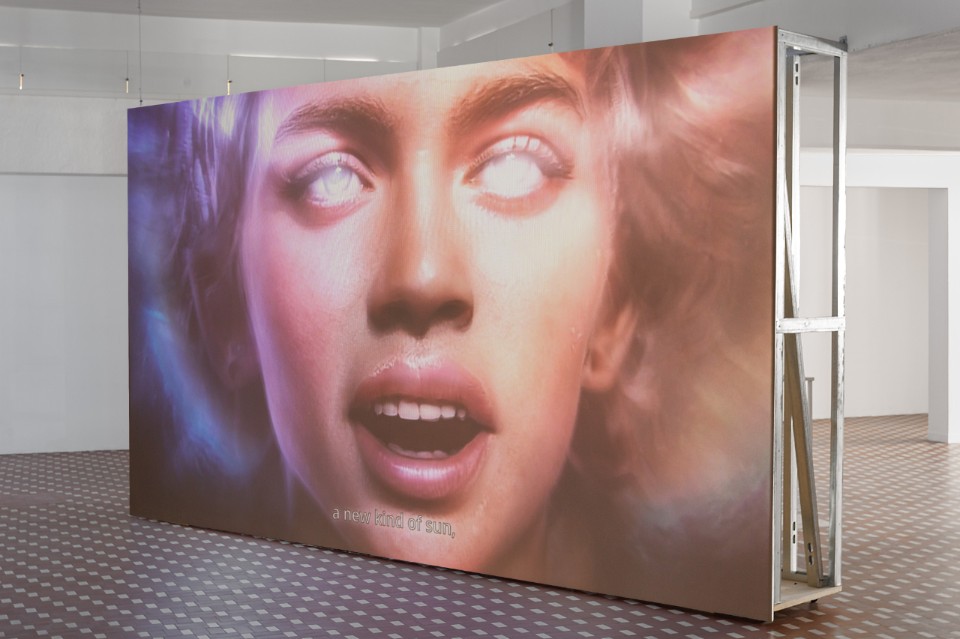In recent years, technological advancements and climate concerns have challenged the anthropocentric view we once took for granted. The concept of "intelligence" has begun to expand − partly due to a linguistic misunderstanding − beyond the human realm. We've started to critically examine botanical, plant, and animal intelligences, finding fascination in fungi and their mycelium networks, all while investing substantial capital in developing artificial intelligence.
AI, in particular, has been met with a mix of bewilderment and amazement, oscillating between enthusiasm and unease. This reaction reflects a cognitive limitation that compels us to view AI through a “humanizing” lens. Consequently, the “intelligent machine,” inevitably characterized in anthropomorphic terms, emerges as an “existential technology” with its own unique “look.”
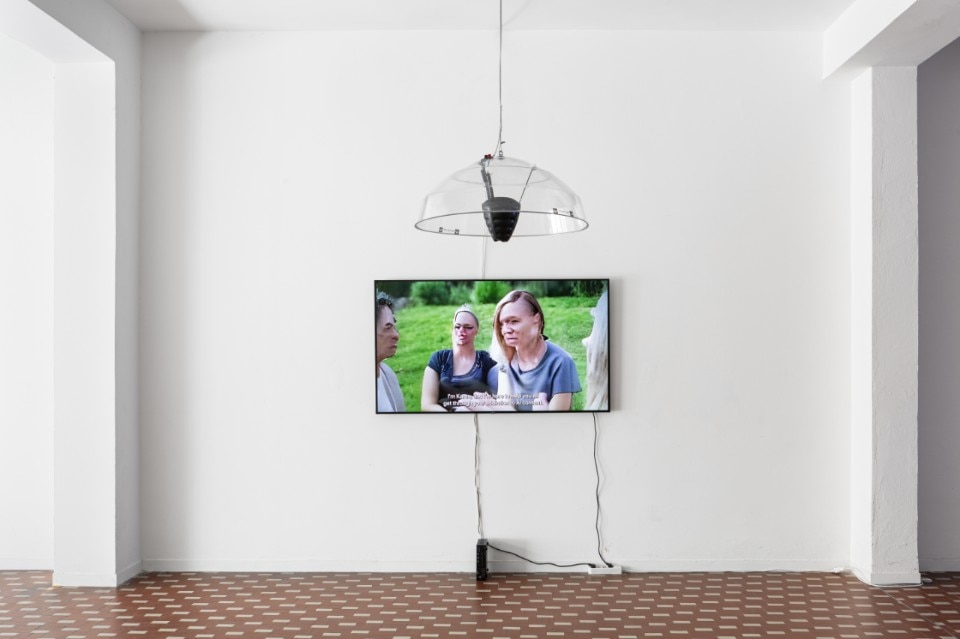
An exhibition at Fondazione Spazio Vitale in Verona examines the ongoing unease that AI continues to generate, exploring its presumed subjectivity and potential for “consciousness-raising.” Artists such as Jonas Lund, Silvia Dal Dosso, Lorem, Sanela Jahić, and Daniel Felstead & Jenn Leung contribute to a diverse, collective reflection on the implications of AI's development. “Whenever we talk about artificial intelligence,” curator Domenico Quaranta tells Domus, “we should perform a preliminary exercise, a small ritual of critically distancing ourselves from the terminology we use. Words like intelligence, vision, and learning instill an animistic and anthropomorphic conception of AI, which is contagious even for those who understand that AI is a simulation of intelligence, and that machines do not see or learn as we do.”
But how does the machine see? While the concept of “vision” opens a rhetorical and humanizing conversation, artists Émilie Brout & Maxime Marion − presenting Idle, a music video depicting AI achieving self-awareness – exasperate this narrative by staging “this alternative reality, which we are already prepared to accept because we possess the language to describe it. The singularity is not the dystopia envisioned by some AI doomers but the evolutionary perspective implicit in the language we've been using since the 1950s to talk about artificial intelligence.”
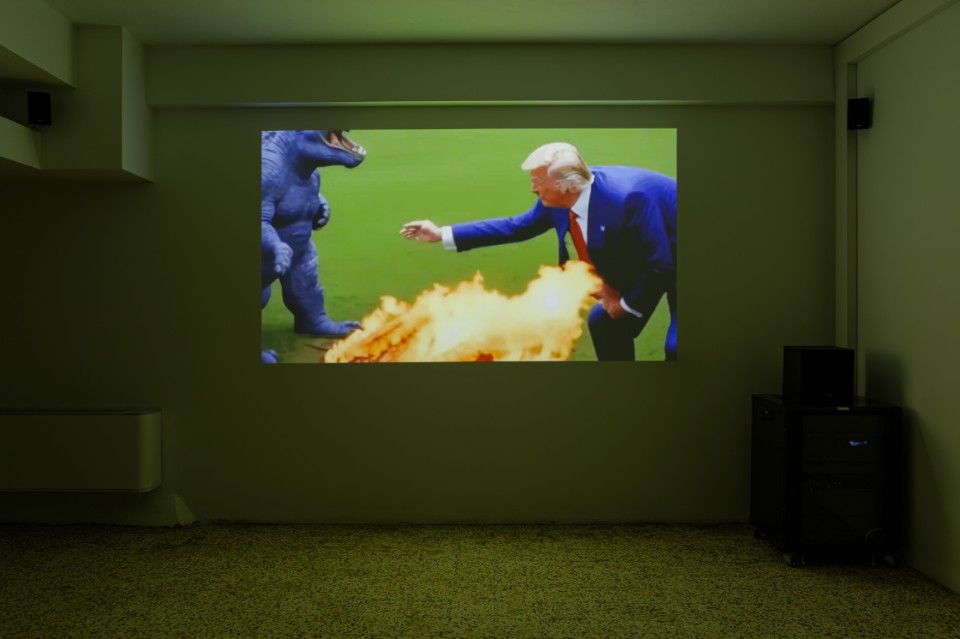
It seems that much of our fascination with AI stems from language. In any case, the fact remains that the machine possesses a subjective vision that “has nothing to do with human vision, nor with the vision − alien to us but nonetheless mediated by an organic visual apparatus − of a spider or a fly.” Instead, it is “the combined result of mechanical acquisition systems (cameras, sensors, etc.), pattern recognition algorithms, and immense databases of visual content ‘labeled’ to refine these algorithms. This vision is often recalibrated according to the function of the device incorporating it (a self-driving car ‘sees’ differently from a drone, an OCR scanner, a surveillance apparatus, or a Google Lens camera) and is oriented toward a specific operational purpose.”
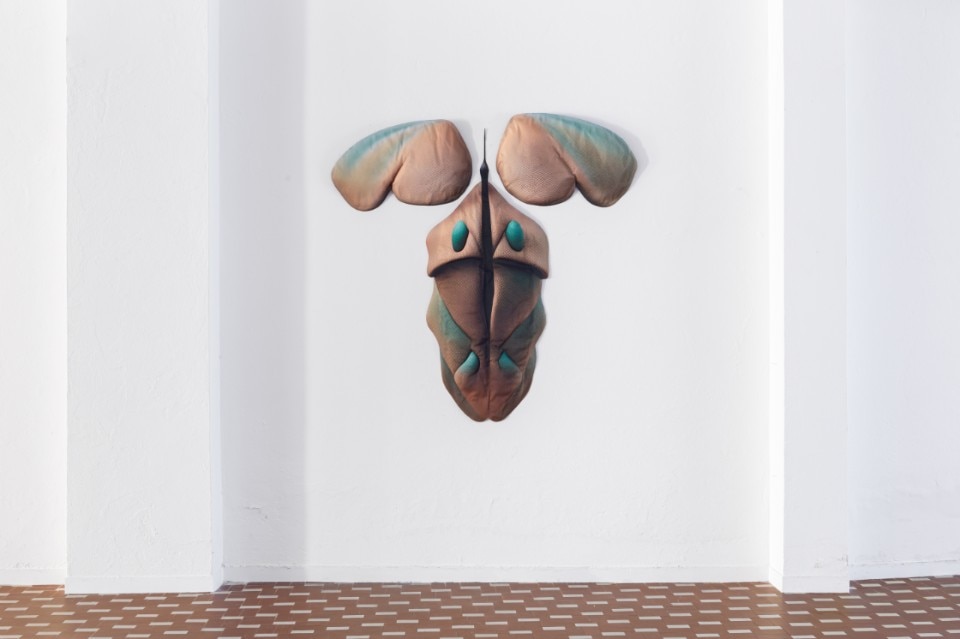
While machines cannot perceive the way humans do, the human gaze is imbued with intellectual, aesthetic, and emotional components that remain impossible (at least for now) to simulate. Ans this is the aspect that Kamilia Kard's work − a digital interactive installation featuring “hybrid entities” that resemble flowers but appear to be made of human flesh and move like small animals − emphasizes. Her art aims not to challenge the machine vision but to highlight “the immediate perception of the alien and hybrid nature of these creatures, and the intellectual and aesthetic pleasure of recognizing a metaphor that becomes a living image.”
Words like intelligence, vision, and learning instill an animistic and anthropomorphic conception of AI, which is contagious even for those who understand that AI is a simulation of intelligence, and that machines do not see or learn as we do.
Domenico Quaranta
At the same time, the machine's perception, although cryptic, shapes our own perception. Consider “the self-generated galleries and videos on the iPhone, which curate and aggregate content from my archive using facial recognition and predefined criteria of image quality, continually refined based on my preferences,” Quaranta highlights. Moreover, there's “our collective capacity to recognize an AI-generated image as such, and the expanding acceptance of falsehoods as truth.”
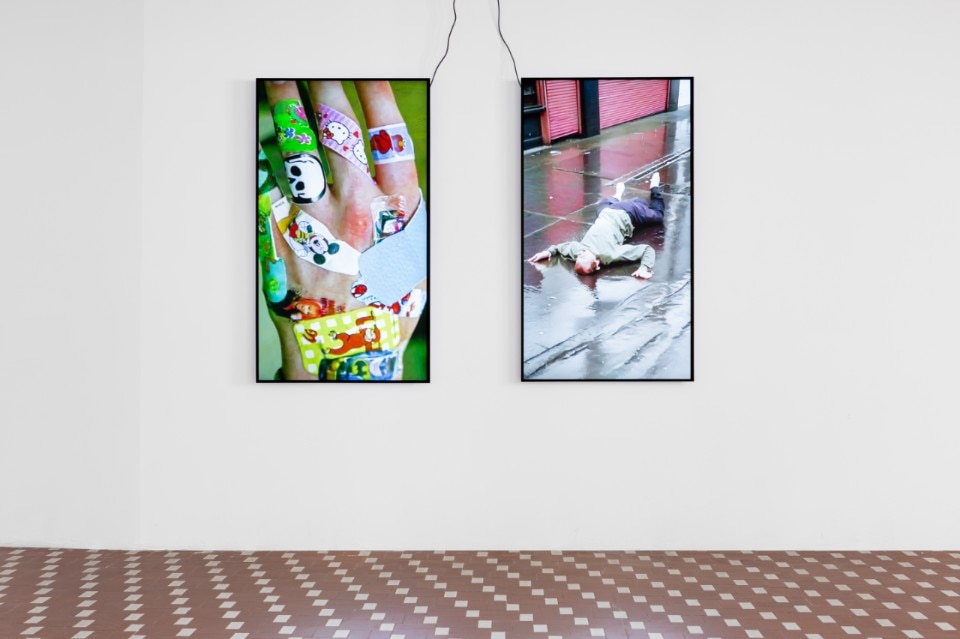
Lastly, the machine not only “sees” but also reproduces (and, more recently, even generates) images. In Jon Rafman's work, we witness how these images infiltrate the collective unconscious (and vice versa).
Similarly, “humans influence the machine by curating datasets − creating, tagging, and sharing images, contributing to gig working platforms, manufacturing smiles on demand, or simply using their digital devices − and by engineering the generative process at the algorithm or prompt engineering level.” Conversely, “the machine influences humans by employing ‘our’ dataset − contributing to the repository of available images through the generation of new ones − and by reshaping our sensitivity to images, our capacity for surprise, and our visual expectations.” It’s a relationship that seems destined to persist and self-perpetuate, scrutinized by companies, researchers, and artists alike.
- Exhibition:
- Per Speculum. Intelligence and Its Double
- Location:
- Spazio Vitale, Verona, Italy
- Dates:
- from 25th May to 29th June 2024


